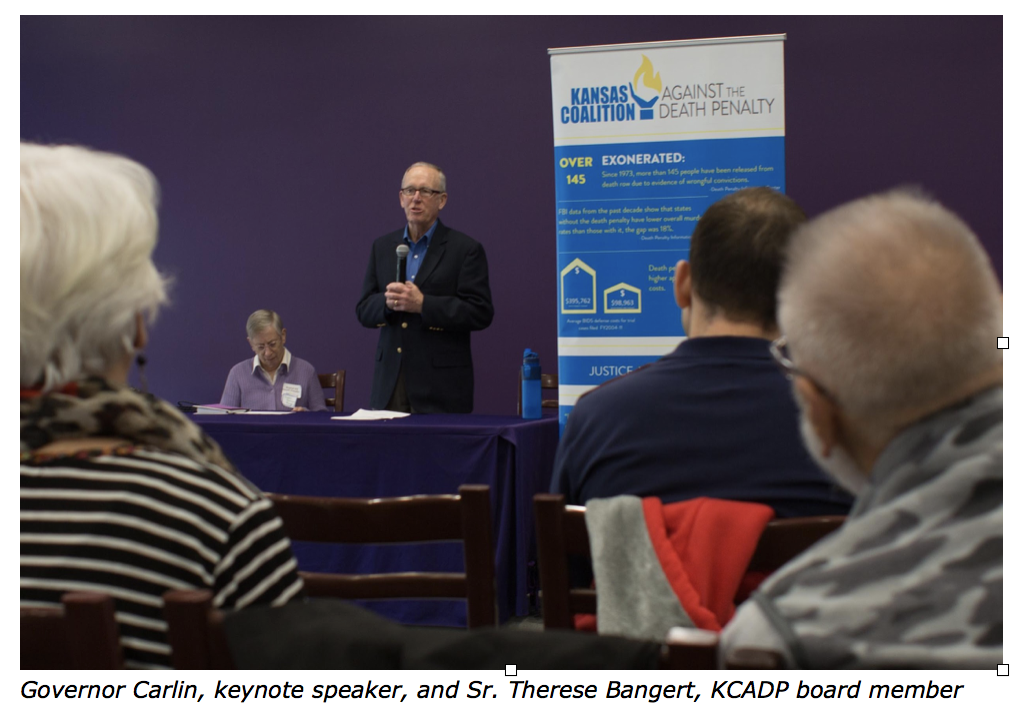
Just 60 days into his tenure as governor of Kansas, John Carlin was forced to confront the death penalty head-on. While he had promised not to oppose its reinstatement during his campaign, he admitted that, like many, he hadn’t thought very deeply about the death penalty at that point.
When freshly passed legislation authorizing executions arrived on his desk in early 1979, though, “It started to become real,” he said.
On November 2nd, Governor Carlin told the full tale of his conversion from inaction to abolition hero, as people from fifteen different Kansas communities attended the KCADP annual meeting and abolition conference in Manhattan.
Governor Carlin vetoed the Kansas death penalty in 1979, and would go on to veto it three more times “without any regrets” during his tenure as governor, keeping Kansas free of death sentences for an additional fifteen years. Citing the difficulty of finding closure for victims’ families, the costs, and the prevalence of mistakes, Governor Carlin urged conference attendees to respectfully reach out to representatives in their districts to let them know that the death penalty is an important issue.
“Update and share information, and let your legislators know they have a constituent that’s very vocal on the issue….Show up and respectfully ask a question,” he urged.
The conference workshop sessions helped give attendees the tools to do just that.
In the legislative workshop, Senator Hawk and Representative Schreiber also discussed engagement with legislators, particularly stressing that communication needs to be ongoing. A single letter or email or visit isn’t enough, they said. Respectful, continuous communication is key.
The “Marketing Abolition” breakout session with Al Terwelp and Dalton Glasscock helped attendees learn about techniques for better communicating the case of abolition. Those in attendance learned about the communication style of the opposition, how to use fact and emotion when speaking, points to communicate, and how to prepare an elevator speech. After the presentation there was a robust group discussion and the sharing of experiences with debating the death penalty.
Lastly, attendees had the opportunity to learn more about the extra cost of the death penalty and how it impacts our state budget in a workshop led by Ron Wurtz, KCADP vice-president and former capital public defender. Mr. Wurtz stressed that, while we know death penalty cases cost many times more than life without parole, we don’t even have an exact number because much of the prosecution cost is unreported. While the death penalty is a moral issue, as Mr. Wurtz and others noted, costs can be persuasive even for people who might otherwise be indifferent.
Overall, attendees hopefully left with both the tools and the inspiration to aid the cause of death penalty abolition in Kansas. If you weren’t able to make it, be sure to check out Governor Carlin’s keynote address, which is available on the KCADP Facebook page. As Governor Carlin concluded, while the politics can be difficult to navigate, “This state is not a death penalty state. It really is not.” Let’s respectfully engage with our representative to make that so!
photo credit: Meryl Carver-Allmond


